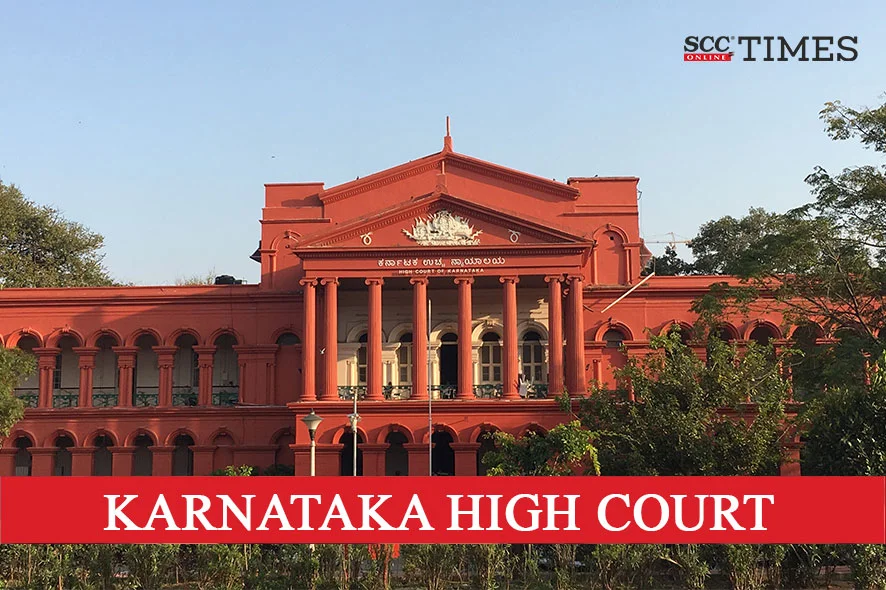Karnataka High Court: While considering the instant petition wherein the petitioner had challenged the selection of successful candidate from Chamarajpet constituency in 2023 Elections conducted for the Karnataka State Legislature on the ground that the promises made by the Indian National Congress (INC) party in its manifesto particularly the 5 Guarantees, amounts to corrupt practices; the Bench of M.I. Arun, J.*, held that the 5 Guarantees of the Indian National Congress must be considered as social welfare policies and whether they are financially viable or not is altogether a different aspect. It is for the other parties to show that how implementation of the said schemes amounts to bankruptcy of the State Treasury and may lead to misgovernance of the State. The Court opined that it is possible that the guarantees can be termed as wrong policies under the given facts and circumstances of the case but cannot be termed as corrupt practices.
Background: During the run up to the State Legislative Elections in Karnataka in 2023, the Indian National Congress released its manifesto which contained the 5 Guarantees, namely-
(i) ‘Gruha Jyothi’– 200 Units of Free Electricity to all the houses;
(ii) ‘Gruha Lakshmi’– Rs.2,000/- every month to each and every women head of the family;
(iii) ‘Anna Bhagya’– 10 kilograms of food grain every person in BPL family per month;
(iv) ‘Yuva Nidhi’– Rs.3000/- per month for two years to unemployed graduates and Rs.1,500/- per month for two years to unemployed diploma holders;
(v) ‘Shakthi’– free travel to all women throughout the state in regular KSRTC/BMTC Buses.
The petitioner contended that the afore-stated guarantees amount to corrupt practices and sought that the election of the winning candidate from INC, be set aside. The petitioner further contended that the manifesto of the Indian National Congress is dubious, and the guaranteed schemes will bankrupt the State Treasury and are not implementable and the guarantees were made with an ulterior motive of attracting gullible voters and that itself has the effect of corrupt practices as contemplated in the Representation of Peoples Act, 1951 (RP Act).
Per contra, the respondent argued that the petitioner did not make any personal allegations against the respondent candidate as being involved in corrupt practices but has contended that the manifesto of the Indian National Congress party amounts to corrupt practice and it is submitted that the manifesto of the Indian National Congress party amounts to a policy matter.
Court’s Assessment: The Court had to consider that whether Congress’ manifesto for the State Elections amounts to the corrupt practice as contemplated under Section 123 of the RP Act.
The Court noted that under Section 123, a practice shall be considered as a corrupt practice when the same is done by a candidate or his agent or by any other person with the consent of the candidate or his agent, and not otherwise. A declaration by a party as to the policy that they intend to bring about cannot be considered as a corrupt practice.
The Court pointed out that whether the policies as declared in the manifesto is sound or not and whether it has the effect of dolling out freebies or appeasing a section of the society to the detriment of others, is a matter to be debated and it is for the voters to enlighten themselves about the viability of the said promises and vote for a particular party. However, the same cannot be considered as a corrupt practice for the purpose of Section 123 of the RP Act.
With the afore-stated assessment, the Court concluded that the instant petition does not disclose the cause of action, as the petitioner challenged the election of the winning candidate only on the ground of INC’s manifesto amounting to corrupt practice, therefore, the petition is liable to be rejected.
[Shashanka J. Sreedhara v. B.Z. Zameer Ahmad Khan, 2024 SCC OnLine Kar 46, decided on 25-04-2024]
*Order by Justice MI Arun
Advocates who appeared in this case :
For petitioner- Pramila Nesargi, Sr Counsel a/w Advocates Sunil MV, Priyanka G, G Devarajgowda
For respondent- Advocates Sriyuths Shaik Ismail Zabiulla, Gokul Kumar S.O. Chandra L., Vijay Kumar Y.H., and Mohamed Rizwan Ahamed






